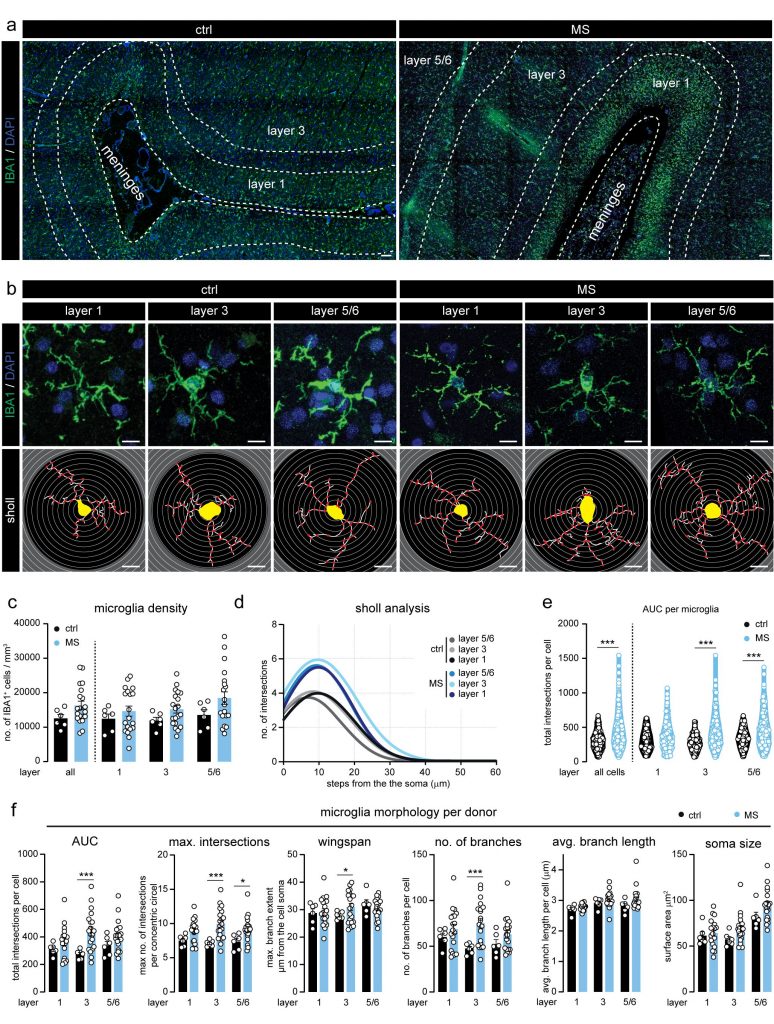
Multiple sclerosis (MS) is the most common chronic neurodegenerative and neuroinflammatory disease in young adults and despite availability of many disease-modifying therapies most patients will eventually develop secondary progressive MS. Here, we uncovered two distinct MS-specific phenotypes of brain resident immune cells, microglia, that are driven by local meningeal inflammation and differentially associate with neuronal damage. Results suggest that these phenotypes may occur sequentially during chronic meningeal inflammation and that microglia lose their protective properties over time, leading to neuronal loss. Hence, timely targeting of the processes contributing to microglial activation in the progressive MS cortex provides an interesting therapeutic strategy to combat progressive MS.

